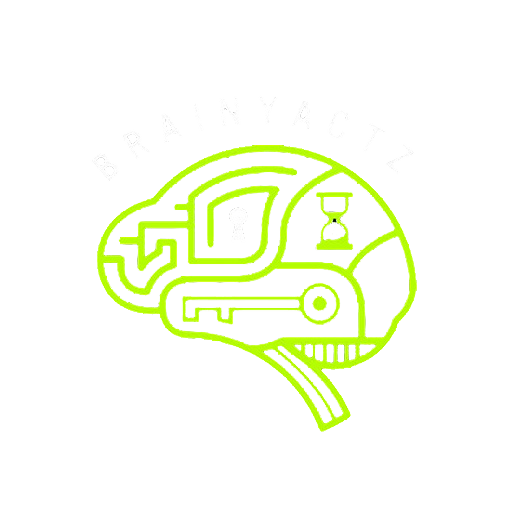Corporate team-building activities in escape rooms offer a unique and engaging way to strengthen workplace dynamics. These immersive experiences require employees to collaborate, communicate, and think critically to solve puzzles and complete challenges within a set time limit.
By stepping into themed scenarios ranging from historical adventures to futuristic quests, teams are pushed out of their comfort zones and encouraged to work together innovatively. This hands-on approach fosters stronger bonds and enhances essential skills like problem-solving, leadership, and resilience.
Keep reading to discover how these thrilling escape room experiences can ignite the spirit of cooperation and strategy within your team.
Key Takeaways
- Escape Rooms Reveal Individual Strengths and Improve Team Skills in a High-Pressure Environment
- Immersive Themes in Escape Rooms Enhance Learning Outcomes and Team Cohesion
- Real-Time Problem-Solving and Decision-Making in Escape Rooms Strengthen Communication and Trust Among Team Members
- Customized Escape Room Challenges Can Mirror and Reinforce Skills Relevant to Workplace Scenarios
- Post-Escape Room Reflection and Feedback Are Crucial for Measuring Team-Building Success and Long-Term Improvement
Understanding the Role of Escape Rooms in Team Dynamics

Escape rooms enhance team dynamics by providing a controlled yet challenging environment where team members must rely on each other’s strengths to succeed. The immersive nature of escape rooms requires participants to communicate effectively, share ideas, and collaborate closely to solve puzzles and complete tasks.
This collaborative effort helps to break down barriers, build trust, and foster a sense of unity within the team. Additionally, the pressure of a ticking clock and the need for quick decision-making highlight natural leaders and team players, revealing individual strengths and areas for improvement.
Through these shared experiences, teams develop better problem-solving skills and learn to appreciate and leverage their diverse talents, improving cohesion and workplace performance.
Identifying Core Team Skills Enhanced by Escape Games
Escape games enhance various core team skills, including problem-solving, communication, and leadership. By working together to solve puzzles and complete challenges, team members improve their ability to collaborate, think critically, and make decisions under pressure. These skills are directly transferable to the workplace, leading to improved performance and teamwork.
- Teams plunge into a world where every clue is critical, and problem-solving becomes their lifeline.
- A staged murder mystery game demands creativity, with each member bringing fresh perspectives to build a collective strategy.
- Throughout the experience, ongoing feedback flows freely, honing communication skills and fostering a robust learning environment.
For those eager to know more, escape room venues often provide an FAQ section to guide teams beforehand, ensuring a smoother collaborative effort during the game.
The Psychological Impact of Shared Experiences
Shared experiences, like escape games, have a significant psychological impact on teams. Participating in these activities fosters a sense of unity as team members bond over a common goal. This shared adventure can break down barriers, build trust, and create lasting memories, contributing to a positive team culture and stronger interpersonal relationships.
Designing Your First Team-Building Escape Room Experience

Stepping into escape rooms offers an adrenaline-pumping, mind-bending exercise in unity and wit.
It starts with selecting a theme that resonates with the group, setting the stage for a thrilling narrative overlaying each puzzle.
Every choice, from an ancient temple’s mystique to a space station’s sleek corridors, tailors the experience toward fostering critical thinking and team cohesion.
Having a clear map of desired objectives and outcomes acts as a compass, guiding the team, pushing them to manage stress effectively, and harnessing different management styles.
The right combination of theme and goals magnifies the excitement of the escape adventure and aligns closely with the team’s growth trajectory.
Selecting the Right Theme for Your Team
Choosing a team-building escape room theme requires a blend of creative flair and a keen understanding of the group’s dynamics. The theme should captivate and engage and strengthen learning outcomes, whether it’s unraveling a crossword, sharpening memory, or navigating through augmented reality challenges. It’s about hitting that sweet spot where fun meets functional, ensuring every team member walks away with both a sense of accomplishment and new skills.
- Puzzle-centric themes like a detective’s office can leverage the joys of cracking crosswords together.
- A historical adventure might be a memory marathon, challenging teams to recall intricate facts and figures.
- For those seeking a futuristic spin, an augmented reality scenario can merge physical and digital puzzles for a truly immersive learning environment.
Mapping Out Objectives and Outcomes
Before embarking on an escape game, it’s important to map out clear objectives and desired outcomes. Define what skills or team dynamics you aim to improve, such as communication, leadership, or problem-solving. Setting these goals helps ensure that the activity is purposeful and provides measurable benefits for the team.
Key Benefits of Choosing Escape Rooms for Your Team

Escape rooms are a fantastic choice for team-building activities, offering numerous benefits that enhance team performance and dynamics. These immersive experiences promote collaboration and communication as team members work together to solve puzzles.
Escape rooms also encourage critical thinking and creative problem-solving, essential skills for any workplace. They allow employees to step into leadership roles and make quick decisions under pressure, revealing natural leaders.
The fun and engaging environment boosts morale and strengthens team bonds, making these sessions both enjoyable and memorable. Overall, escape rooms promote a cohesive, innovative, and resilient team.
Encouraging Critical Thinking and Creativity
Escape games are designed to encourage critical thinking and creativity. Participants must analyze clues, devise strategies, and think outside the box to progress. This environment stimulates innovative thinking and enhances problem-solving skills, which are valuable assets in the workplace.
Strengthening Communication and Collaboration
Effective communication and collaboration are essential for success in escape games. Teams must share information, listen actively, and work together to solve puzzles. This experience reinforces the importance of clear and open communication, helping to improve these skills in professional settings.
- Under the weight of time, an escape room engages a virtual team in a dance of dialogue and decision-making.
- Each puzzle solved acts as a stepping stone, reinforcing the bridge of communication being built within the team.
- The culmination of their escape room journey is a testament to the strengthened collaboration honed through immersive reality.
Step-by-Step Guide to Creating a DIY Escape Room for Teams

When creating a DIY escape room for your team, the crux of the matter is designing puzzles that resonate with workplace scenarios.
It’s about more than play; each brain-teaser and riddle is a microcosm of the daily hurdles teams encounter at work.
This alignment ensures the game remains relevant and beneficial, reinforcing collaboration.
Equally important is getting the balance right—puzzles should test the team’s mettle without causing them to become frustrated.
The right difficulty level maintains engagement, keeps spirits high, and reinforces the value of working together to find a solution.
Crafting Puzzles That Reflect Workplace Challenges
Crafting puzzles that reflect real workplace challenges can make escape games even more relevant and beneficial. To provide practical training, design scenarios that mimic common office issues, such as project management or deadline pressures. This approach helps teams develop strategies to apply directly to their work.
- To set the stage for the escape room, start with a common workplace scenario, such as a project deadline.
- Develop puzzles that require skills similar to those needed in the workplace, such as critical thinking or effective communication.
- Integrate elements that reflect the team’s existing knowledge base and push them to learn and adapt.
Balancing Difficulty to Keep the Team Engaged but Not Frustrated
Balancing the difficulty level of escape games is crucial to keep the team engaged without causing frustration. The challenges should be stimulating yet achievable, allowing participants to experience success and build confidence. A well-balanced game maintains excitement and motivation throughout the activity.
Innovative Escape Room Themes for Corporate Teams

Innovative escape room themes can significantly enhance the team-building experience for corporate teams by immersing participants in engaging and challenging scenarios. Themes such as historical adventures, futuristic quests, and mystery-solving scenarios provide diverse and stimulating environments that cater to different interests and skills.
These creative settings encourage team members to think outside the box, collaborate effectively, and leverage their unique strengths to solve complex puzzles.
By choosing themes that resonate with your team’s interests and align with your company’s culture, you can create a memorable and impactful experience that boosts team morale and fosters essential skills like communication, problem-solving, and leadership.
From Historical Adventures to Futuristic Quests
Escape games offer many themes, from historical adventures to futuristic quests. This variety allows teams to choose experiences that align with their interests and preferences, enhancing engagement and enjoyment. Diverse themes also provide unique challenges and learning opportunities, catering to different skill sets and team dynamics.
Customizing Themes to Match Team Interests
Customizing escape game themes to match team interests can significantly boost participation and enthusiasm. Consider incorporating elements related to your industry, company culture, or specific team hobbies. Personalizing the experience makes it more relevant and enjoyable, leading to greater engagement and better outcomes.
Measuring the Impact of Escape Rooms on Team Performance

The true value of these engaging exercises is often revealed by closely examining their aftermath.
Teams can access various tools and strategies designed specifically for gathering feedback and highlighting any changes in the team’s function.
By drawing insights from participant reflections and observing their dynamics before and after the experience, companies can plan improvements in team cohesion and overall performance.
These metrics serve as a report card and a roadmap for continuous team development.
Tools and Strategies for Feedback Collection
Collecting feedback after an escape game is essential for evaluating its effectiveness and identifying areas for improvement. Use tools like surveys, group discussions, and feedback forms to gather participant insights. This information can help refine future team-building activities and ensure they meet the team’s needs.
Analyzing Improvements in Team Cohesion and Performance
Analyzing team cohesion and performance improvements after an escape game provides valuable insights into the activity’s impact. Assess changes in communication, collaboration, and overall team dynamics. This analysis helps determine the effectiveness of the escape game and guides future team development initiatives. Organizations can better tailor their team-building efforts to achieve desired outcomes by understanding these improvements.
Conclusion
Escape rooms are a dynamic catalyst for innovative team building, transforming group dynamics through collaborative problem-solving and high-stakes challenges.
These immersive experiences foster critical thinking and creativity, while pushing teams to sharpen communication and strengthen their trust in one another.
Team members can transfer skills learned in the escape room to their daily work environment by engaging with puzzles that mimic real-world scenarios.
Not only do escape rooms provide an adrenaline-filled adventure, but they also offer a unique opportunity for teams to bond and improve their collective performance in a memorable and meaningful way.

